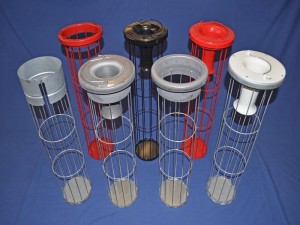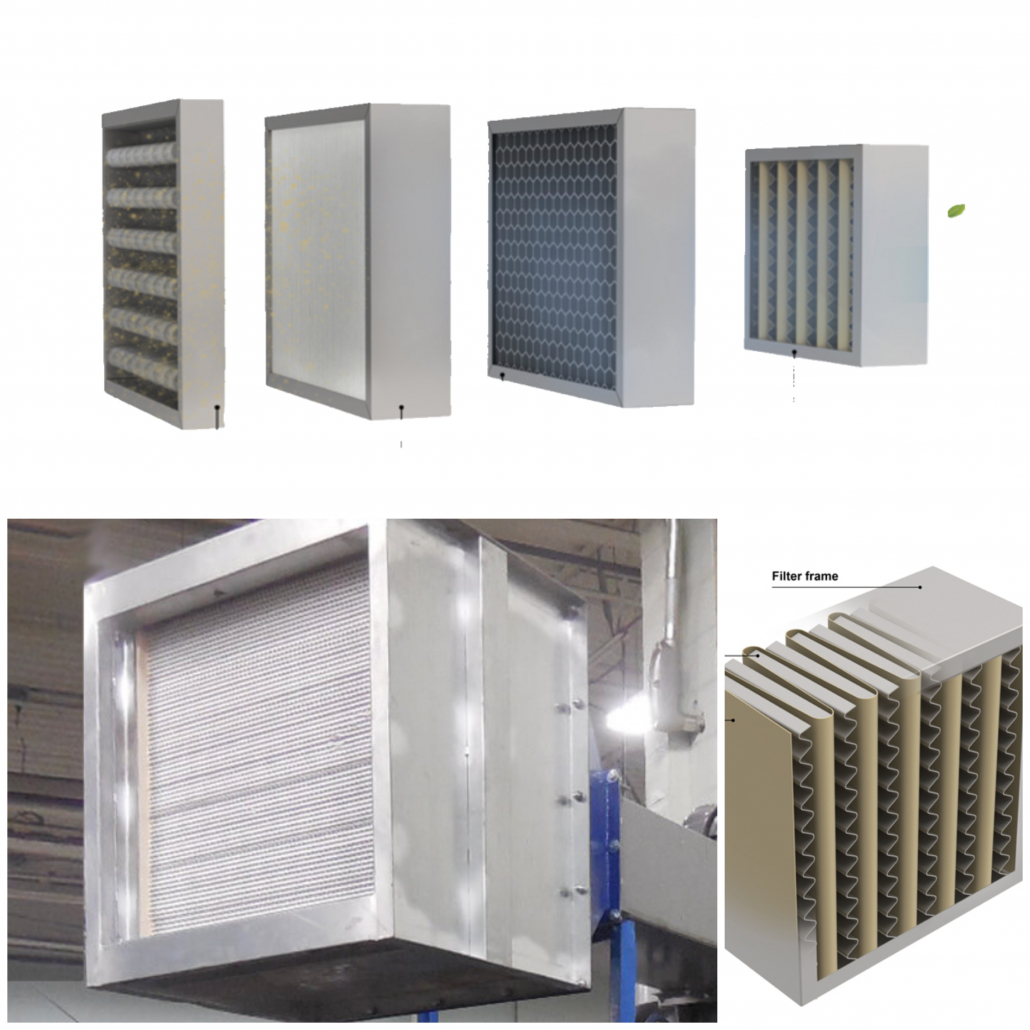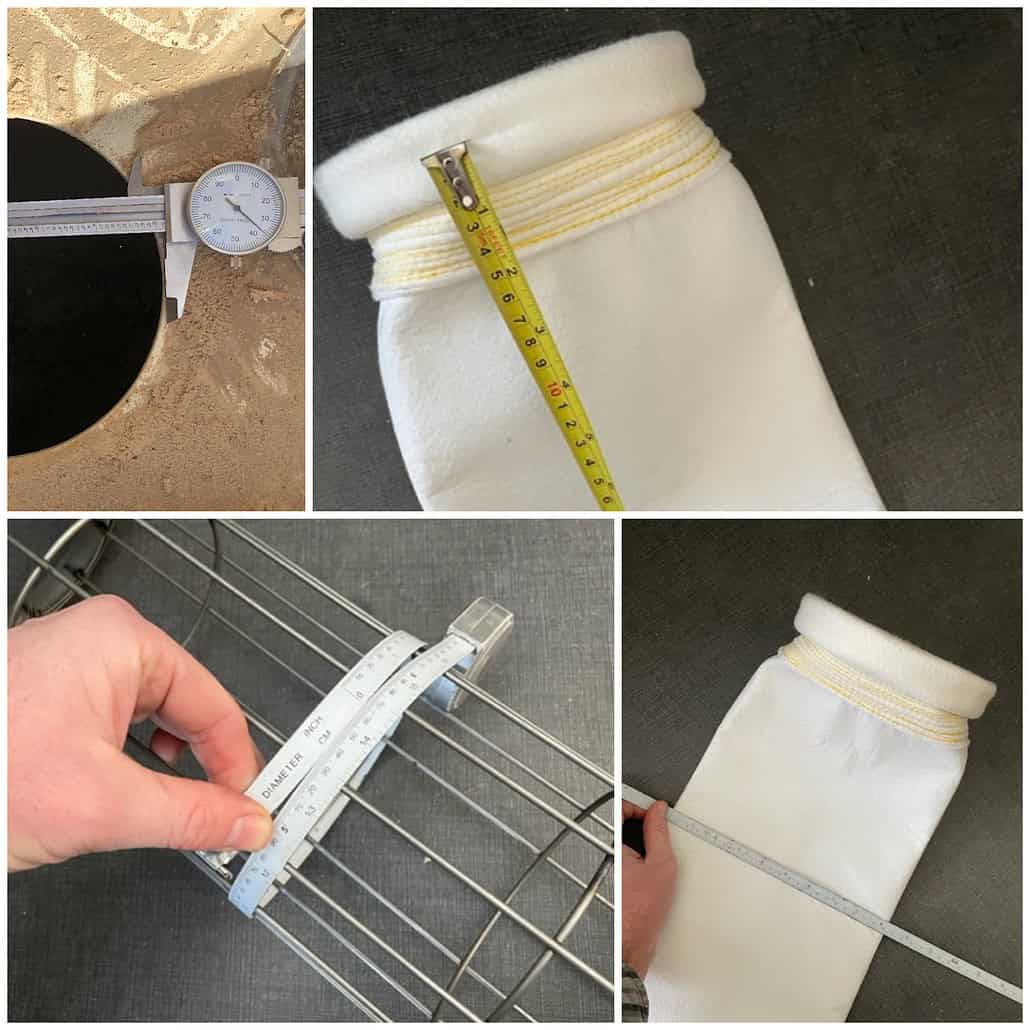The answer is that it depends…In many applications it is possible to reuse the cages once or possibly more. But in many other applications it may not be wise to reuse the cages.
Damaged Baghouse Cages From Corrosion and Mishandling
The main two types of cage damage we see are physical damage (bending, breaking, warping, etc.) and corrosion. Cages frequently get bent or broken by maintenance personnel over time by handling during changeouts and maintenance work. Other times, cages are damaged when stacked on top of each other for storage. Additionally, fires or temperature excursions can warp cages.
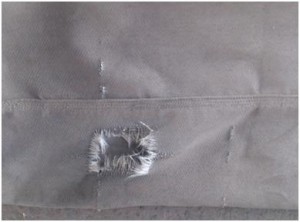 Corrosion can occur from chemical attacks (e.g. acid flashes,) or upset conditions within the system. In some applications, high moisture levels can promote corrosion of the metal cages very quickly. And sometimes cages are stored outside uncovered and left exposed to the elements.
Corrosion can occur from chemical attacks (e.g. acid flashes,) or upset conditions within the system. In some applications, high moisture levels can promote corrosion of the metal cages very quickly. And sometimes cages are stored outside uncovered and left exposed to the elements.
Reusing Damaged Cages Will Cause Your Baghouse Filters To Fail Sooner!
There are three ways damaged or corroded cages cause filters to fail:
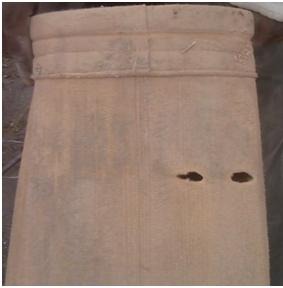
Bent or warped cages can eventually wear holes through your bags and cause massive leaks.Using damaged or corroded cages along with new baghouse filters will damage your filters and lead them to fail. This means you will experience leaks or even total filter failure much quicker than normal. Such failures can have high costs in terms of maintenance, possible system shutdowns, lost production as well as the costs of buying replacement filters sooner than normal.
- When pulsed bent cages can cause the filters to rub against each other or against the sides of the collector causing the bags to tear open
- Bent, twisted, or broken cages will have many sharp edges that can cut holes in the fabric very quickly when pulsed
- Rusted or corroded cages will eat through the bag fabric and very quickly cause holes to appear.
In applications with very corrosive environment
(acid/alkali compounds, high humidity, condensation, etc.) such as foundries, dryers, chemical processing, etc., it is essential to avoid reusing cages that are damaged or corroded.
Even in applications with milder environments, the frequent handling of cages during repeated changeouts will eventually result in damage to the cages. Using cages in good condition extends filter life and improves efficiency by preventing:
- Tearing or cutting filter on sharp edges
- Damage from abrasion from other bags or unit
- Corrosion eating through the fabric on the bags (Consider investing in galvanized, epoxy-coated or stainless steel cages to improve resistance to corrosion
- Ineffective cleaning by ensuring the bags are properly fitted to the cages (Bags need to fit correctly
across entire cage in order to get the required snap back when pulsed with air…not possible with bent cages
Reusing Damaged Cages Can Cost You Dearly
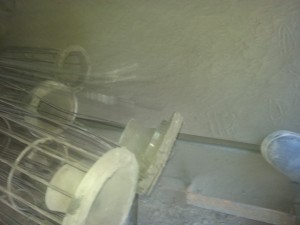
Corroded (rusted) cages will lead to early bag failure. Avoid reusing cages if they are damaged or corroded in any way.
Even minor rips, holes, and tears in the bags can lead to exceeding emissions limits. In many plants, such a problem will cause an emissions spike, becoming a “reportable event”, with possible fines and sanctions from regulators as a consequence. Additionally, any baghouse malfunction has the potential for causing plant-wide problems, that may lead to shutdowns, production losses and other costs far in excess of replacing the cages.
You can avoid all these problems and more by not using damaged or corroded cages in your baghouse. Additionally, if you keep spare cages on site at your facility make sure to store them where they are protected from corrosion and avoid stacking to many rows on top of another to prevent bending.
Do you have corroded or bent cages in your baghouse? Let us give you a quote today for new cages along with your next set of replacement filters and receive a discount on both! Contact us now for a free quote.

